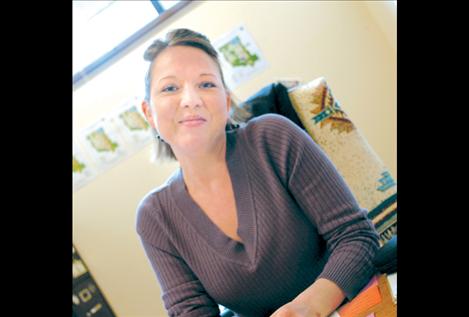Kidney transplant changes local diabetic’s life
Hey savvy news reader! Thanks for choosing local.
You are now reading
1 of 3 free articles.
When the call came from Virginia Mason Hospital and Medical Center that Miranda Burland had moved from second or third on the kidney/pancreas transplant list to first, she knew not to get too excited.
She’d had other calls, telling her she was second or third in line, only to next get the news that the organs had gone somewhere else — an emotional roller coaster ride.
This time was different. Now she was making flight arrangements to fly to Seattle on Dec. 20, 2012, and calling her mom to be with her during surgery. Her sister-in-law Shelley accompanied her to Seattle since her mom couldn’t get a flight in time.
The transplant was the culmination of a 24- year struggle with diabetes and escalating health issues. Burland was diagnosed with Type 1 diabetes when she was an eighth-grader in 1988, just a few days shy of turning 14.
She’d been sick for about a month and ended up in the hospital. Although she wasn’t aware of it, there was a family history of diabetes, but doctors felt Burland’s diabetes was brought on by stress caused by a death in the family. Then Burland’s older brother was diagnosed with Type 1 diabetes in 1993.
Nurses told Burland she needed to be able to give herself her own shots before she could be released from the hospital, so by the second day, she was injecting herself with insulin.
Since the family was on welfare, it wasn’t easy to get the fruit and vegetables she needed to eat, “so I wasn’t quite on the diet they wanted me on,” Burland said.
“I was mad that I had (diabetes),” Burland said. “I was eating candy and drinking pop.”
Getting used to having diabetes wasn’t easy, Burland said. Her meds would cause her to gain weight, so she’d quit taking them until she lost weight and then begin again.
It took a good 10 years for her to understand what was best for her body and how it reacted.
“Diabetes is a constant,” Burland said. “It’s a brain game over the years — how many carbohydrates, how much insulin, how are my sugars?”
She began having low blood sugar and seizures in 1996 or 1997, and they continued. Burland had laser eye surgery because of her diabetes. She began to see Dr. Eddy, a nephrologist, because her creatinine number, which indicates kidney function, was elevated.
They discussed dialysis, extracting excess water and the waste products of normal metabolism from the blood, and a transplant. Burland drove to Virginia Mason Hospital in 2011 to be tested, “to make sure I was healthy and strong enough for a transplant.”
Then Burland’s kidney function numbers jumped to 5 or 6.1, and Dr. Eddy recommended immediate dialysis. Normal levels are 0.6 to 1.3 mg.
Burland was distraught. Her job was important to her, and she couldn’t see how she could go to Missoula three days a week for dialysis. In tears, she could do her dialysis at home.
“Dialysis was kind of a pain,” Burland said.
She had to document everything, take notes and do more bloodwork.
With a catheter in her stomach, she did four exchanges a day and still worked full-time. Her social life dwindled as she scheduled her life around her dialysis and waited for a call regarding a transplant.
The transplant itself was a 6 1/2-hour surgery. Burland’s mom was there every day after the procedure, she said, sitting in her hospital room. She healed well, but was re-admitted to the hospital several times.
Although Burland was excited for the transplant, she said, “I understand somebody lost his or her life for that to happen. It’s sad for that family.”
Burland was anxious to get home and to get off her low-fat diet. With a new pancreas, she had been told she could eat anything she wanted. Her doctor said,”Go ahead; go off the diet once in a while,” so she had the hamburger she had been craving.
Now she has labs three days a week in Missoula and is still checking her sugar four times a day. She still has to record her blood pressure, temperature, pulse and blood sugar. She has to stay hydrated, rest and avoid stress.
Now she’s excited because her A1c, a measure of her average blood sugar over a three-month period, is 5.5 and normal is 6.
“At some point, I won’t have to monitor my sugar any more,” she said.
It’ll be a huge change for her, from her routine, with her only social time at work. Although she will have to take three anti-rejection medications for the rest of her life, diabetes will no longer rule her life. Until now, her life has revolved around fighting the disease, always checking her sugar, deciding what she could eat and how to compensate for the carbohydrates with insulin.
“I’ve never had a hobby,” Burland said. “I don’t know what interests me.”
Now she’ll have time to meet friends for a movie and attend more family occasions.
Since she had her transplant on Dec. 20, Burland said, “That was the best Christmas present I could ever have had.”
















